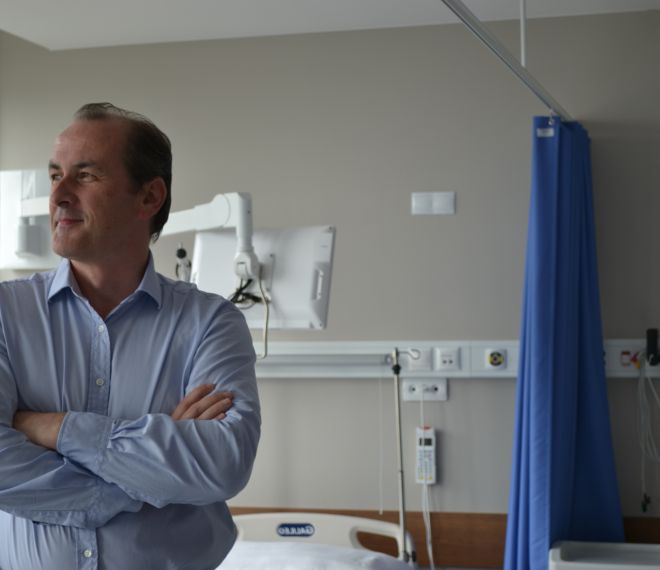Jumping headfirst into the Danube

In 10 years, he performed many types of surgery using the latest techniques, in a very large number and with outstanding quality indicators - he admits that this is what an orthopedic surgeon who loves to operate can only dream of. As a "returnee", he believes that a lot has changed in the country, but this is not enough: he would like the results of doctors and health care providers to be accurately measured at home. Orthopedic surgeon Dr. Zsolt Hegedűs is perhaps in the best place to start this. The team of the Duna Medical Center has been expanded not only by a good specialist, but also by a doctor who, in accordance with one of the main objectives of the Duna Medical Center, can contribute to the creation and strengthening of a new healthcare culture.
"When I see the Danube from the office window, I feel like I'm at home, because it's a little bit mine too. I've never felt this in England, Wales or Scotland, although the landscape was beautiful there too," Dr. Hegedűs guides us around the new surgery overlooking the river.
Why did you decide to work abroad?
Let's not embellish it: I ran away from here. Ten years ago, I asked myself: in ten years, do I want to live the life of the senior doctors who are just that much older than me, or do I want to change and do something completely different. The opportunity to work in England came suddenly, but fate brought it in such a way that I jumped headfirst and succeeded.
To what extent were you accepted as a professional?
I was lucky, because I worked in an independent center that performed surgical interventions on behalf of the local social insurance company, subject to strict quality controls. Because of the international environment, I was quickly accepted and soon enough I got a consulting position and was able to work independently - this was a very big difference compared to my work in Hungary at the time. My own colleagues chose me as their leader, and I am still very proud of that.
This is really the greatest recognition. In Great Britain, however, doctors often boast of statistics...
In England, in my profession, both doctors and institutions are classified, and even implants used in orthopedics are classified. These are compared to a national average, so you can see exactly who is the best and why. Their methods are adopted by others and the quality of the overall care improves. The hospital where I worked was the best: "Best in the West", i.e. the best hospital in the West of England, out of hundreds of hospitals.
There is a similar initiative in Hungary, so the foundations are there. But more is needed. We owe it to the patients to know where, in which hospital, how many interventions were performed, what the statistics of each doctor are, and how common relapses are after surgery.
How feasible would this be in Hungary? Won't the waiting lists be even longer?
The training is good and there are very good professionals in Hungary. I followed 10 years of the development of the English system, and based on this, I am convinced that by objectively measuring the work of professionals, by making quality indicators transparent, and by adopting the practices of well-functioning institutions, care in Hungary can improve a lot, and this can also increase efficiency: there are fewer complications, occurrence of repeated corrective surgeries performed for the same reason.
How can this be implemented in a private healthcare facility?
I would like patients to choose Duna Medical Center in the future because our statistics are transparent and good, whether compared to private institutions or public health institutions. The time has come for patients in Semmelweis' country to choose their doctor based on the results, true to his spirit.
Is that why you came back?
Partly, but mostly, my heart was drawn to Hungary.
Did the family return home with you?
My two older sons stayed in Great Britain, one of them is studying computer science at Imperial College London, the other will start university at Oxford, majoring in mathematics and statistics. The two little ones came back with us, they are now studying in a Hungarian elementary school. I am very happy that we have found our home again after ten years. This is also a head jump, although the waters here are less unknown.
